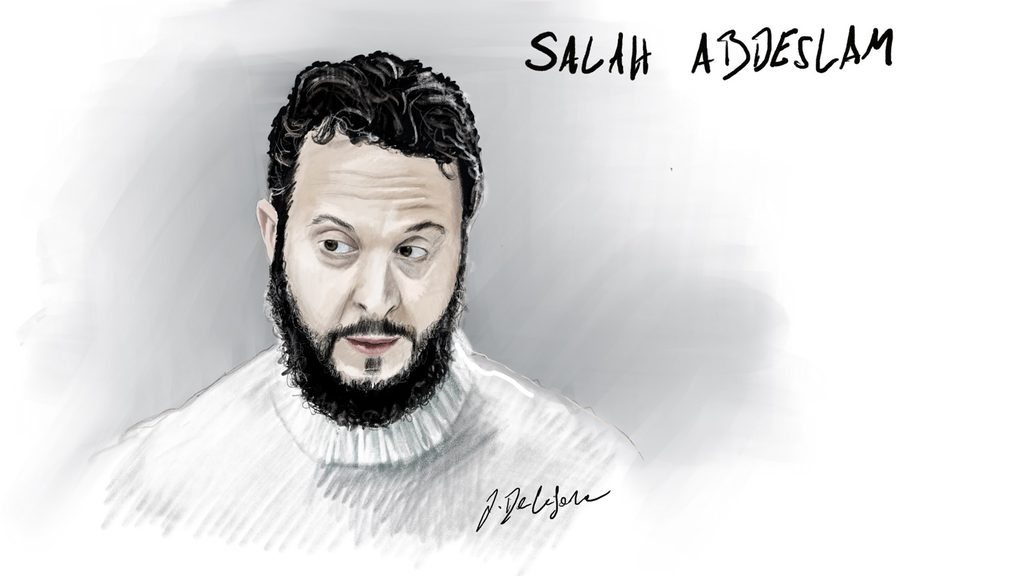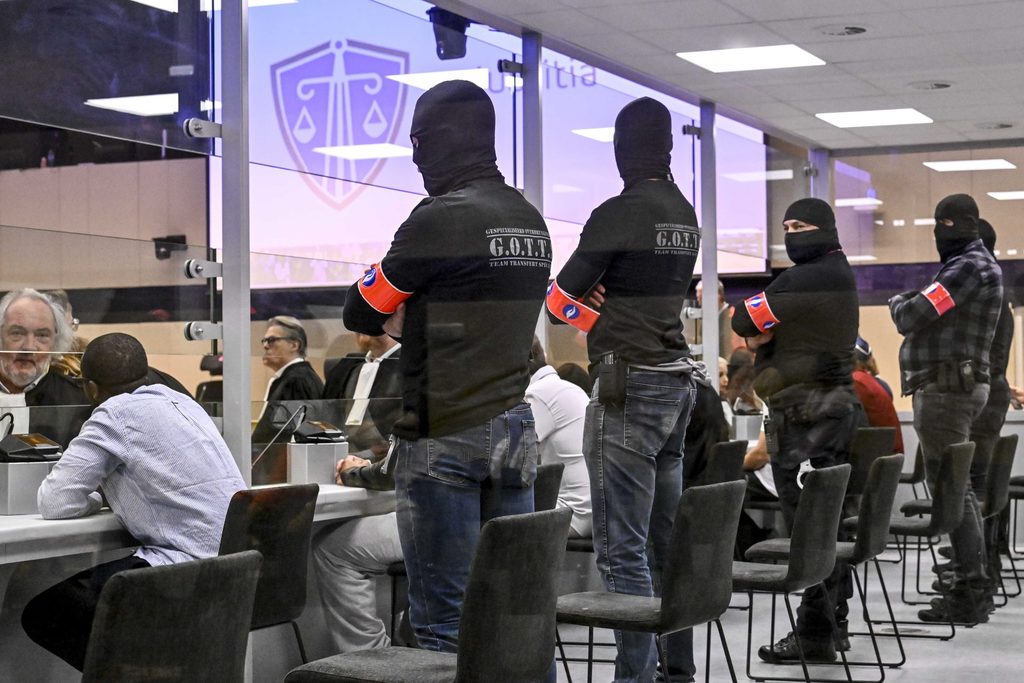The court and the jury have started their deliberations on the sentences of the eight convicted men in the next phase of the trial for the March 2016 terror attacks in Brussels. An important legal-technical question is also being discussed with a ruling is expected later this week.
On Monday morning the eight perpetrators who were convicted for their roles in the 2016 Brussels attacks – Mohamed Abrini, Osama Krayem, Salah Abdeslam, Ali El Haddad Asufi, Bilal El Makhoukhi and Oussama Atar – were allowed to speak for the last time at the trial and expressed their regrets for the victims again.
Shortly after noon, the court and jury went into deliberation. As when considering the verdict, these discussions will take place at a secret location. Again, the members of the jury will be cut off from the outside world: no mobile phone, no internet, no television. But this time deliberations are expected to take less time than in July (which took 19 days).
The ruling on the sentences the convicted men will receive is assumed to follow this week – marking the end of a very long and intense trial.

Credit: Belga
The court and jury must decide what sentences the eight men who were convicted in July will receive. Six of them face life imprisonment having been found guilty of terrorist murder of 35 victims, attempted murder of almost 700 victims and membership of a terrorist organisation.
For the other two, Sofien Ayari and Hervé Bayingana Muhirwa, different penalties were requested as they were not convicted of murder or attempted murder but only of belonging to a terrorist organisation.
It must also be decided whether the Belgian nationality of five of the perpetrators will be revoked, as per the Federal Public Prosecutor's Office's request.
A double life sentence?
The jury and the court must also assess one very important technical-legal issue: whether the sentences imposed at this trial should take into account the sentences that were already imposed at the trial on the 2015 Paris attacks and those at the trial on the shooting in Forest.
In practice, they will have to decide whether it is possible (and legal) to hand a life sentence to those who previously already received a life sentence for their role in the Paris attacks.
This question has been discussed extensively during the course of the trial by both the Public Prosecutor's Office and the defence of those convicted. The lawyers of Abdeslam and Abrini (both found guilty of terrorist murder which is punishable by life imprisonment) argued that their previous sentences should be taken into account.
Related News
- Brussels attacks: Salah Abdeslam wants to serve sentence in Belgium not France
- 'It is only right to severely punish': Terror trial resumes on Monday
- Brussels terror attacks trial: Eight found guilty of terror activities, six of murder, two acquitted
They argued it would even be "illegal" to impose an additional sentence on the two, as they both already received a life sentence for the 2015 Paris attacks. "If you are sentenced to life in prison, you cannot receive the same sentence again."
The Federal Public Prosecutor's Office, however, views the matter differently and does not believe that previous sentences should be taken into account. It stressed that there can be no question of a reduction in sentence for Ayari, who was sentenced to 20 years in prison for the shooting in Forest, but only risks a maximum of ten years at this trial.

